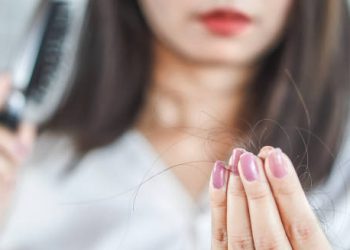Prevention of Molluscum Contagiosum
Prevention of Molluscum Contagiosum focuses on interrupting the spread of this common viral skin infection, which is caused by a poxvirus and transmitted through direct skin contact or contaminated objects.
Although this virus is usually mild and clears on its own, it spreads very easily. It passes quickly among children, family members, partners, and people with weak immune systems. That’s why good hygiene, awareness, and protective habits are key in the prevention of Molluscum Contagiosum and stopping it from coming back.
Understanding how the virus spreads is important when planning ways to stop it. Since the spots hold the virus and stay contagious until they go away, it helps to avoid contact with infected skin. Not sharing items also lowers the risk. Teaching people what to look out for and acting early can reduce outbreaks in places like schools, sports teams, or shared homes.
Avoiding Direct Skin-to-Skin Contact
The virus spreads most often through touching the skin of someone who has it. Young children in daycares or schools can pass it during play. Adults might get it through sex or from shared living spaces.
Here are some helpful tips:
- Don’t touch, scratch, or rub any visible spots—on yourself or others.
- Avoid close or sexual contact with someone who has the infection.
- Teach children not to touch infected friends, but also show kindness to avoid making anyone feel bad.
If someone in the house is infected, it’s smart to limit close contact until the spots are gone or covered properly.
Proper Hygiene Practices in the Prevention of Molluscum Contagiosum
Keeping clean is one of the easiest and best ways to stop the virus. Washing hands and having good personal habits protect both the person who is sick and everyone around them.
Key hygiene tips:
- Wash hands well with soap and water, especially after touching the infected area.
- Use a clean towel after showers—don’t share towels, washcloths, or bedding.
- Don’t share razors, brushes, or other grooming items.
Parents and caregivers should also wash hands after helping kids apply creams or cover the spots.
Covering Active Lesions
Covering the spots is a smart way to avoid spreading the virus—especially in public places like schools, daycares, or parks.
Here’s how to do it:
- Use waterproof bandages or plasters to cover each spot.
- Make sure the cover stays on during sports or swimming.
- At night, remove covers if possible, so the skin can breathe.
Teachers and caregivers should be told in private if a child is infected. This allows safe steps to be taken without causing embarrassment.
Avoiding Shared Environments When Infected
Some activities involve a lot of touching—like contact sports, martial arts, or swimming. In these cases, a child or adult with visible and uncovered spots should stay out for a while.
Swimming pools are risky since many people share water and equipment. To stay safe:
- Don’t swim unless all spots are covered.
- Use waterproof bandages in the pool.
- Don’t share pool toys, towels, or kickboards.
If group activities must continue, extra care should be taken. Everyone involved should understand the importance of hygiene and space.
Avoiding Shaving Over Infected Skin
Shaving on or near the infected area spreads the virus to healthy skin. This often causes a cluster of new spots to form.
To stop that from happening:
- Don’t shave over spots.
- If shaving is needed, use clippers instead of blades. Always clean them afterward.
- Don’t share razors, and replace them often.
This advice is especially important for men with facial spots or women with spots on the underarms or bikini line.
Safe Sexual Practices
In adults, the virus may pass through intimate contact. This is more likely when the spots are in the genital area.
To lower the risk:
- Avoid sex until all spots are gone or treated.
- Use condoms—they help but don’t give full protection.
- Always tell your partner if you have visible spots or know you’re infected.
Doctors may also suggest STI tests, since this virus often appears with other infections.
Supporting the Immune System to Help Prevention of Molluscum Contagiosum
A strong immune system helps the body fight the virus and stop it from coming back. There’s no vaccine or full immunity, but good health can speed up healing.
To build a strong immune system:
- Eat a healthy diet rich in vitamins A, C, and E.
- Exercise often and get enough rest.
- Avoid smoking, heavy drinking, and too much stress.
People with weaker immune systems—such as those with HIV or cancer—should be watched closely. Their care plans should be adjusted to prevent wide spread of the virus.
Educating Parents, Schools, and Communities
Spreading awareness helps stop both the virus and the stigma around it. Many parents don’t even know it’s contagious until an outbreak happens.
Helpful education tips:
- Teach kids not to share clothes or personal items.
- Let schools or coaches know if a child is infected (do this privately).
- Talk openly about skin issues so kids don’t get teased or feel ashamed.
Doctors or school nurses can provide written tips to help remind families what to do without causing fear.
Environmental Disinfection and Laundry
Even though this virus doesn’t live long on surfaces, keeping shared spaces clean helps reduce the risk.
Here’s what you can do:
- Wash bedding, clothes, and towels in hot water (at least 60°C) if used by someone infected.
- Wipe down shared gym gear, mats, and locker rooms often.
- Clean toys and play areas with safe wipes or mild cleaners.
At home, let infected kids have their own laundry pile, and wash hands after handling it.
Limiting Overcrowded or Poorly Ventilated Areas
The virus doesn’t travel in the air, but crowded places make skin contact more likely. Places like locker rooms, child care centers, or dorms can increase spread.
To reduce risk:
- Spread out mats and beds.
- Use separate shower times if possible.
- Don’t share soaps, towels, or other items.
Fresh air and less crowding help lower the chances of indirect spread.
Conclusion: Prevention of Molluscum Contagiosum
The Prevention of Molluscum Contagiosum needs a mix of smart habits. These include clean hygiene, no skin contact, proper care of spots, and keeping shared spaces clean. Teaching others—especially in schools and sports—also plays a big role.
Even though this skin infection isn’t dangerous, it can last a long time and cause stress—especially in kids. Preventing it protects both the person and everyone around them. With the right steps, families and communities can control and stop the spread of this fast-moving virus.


